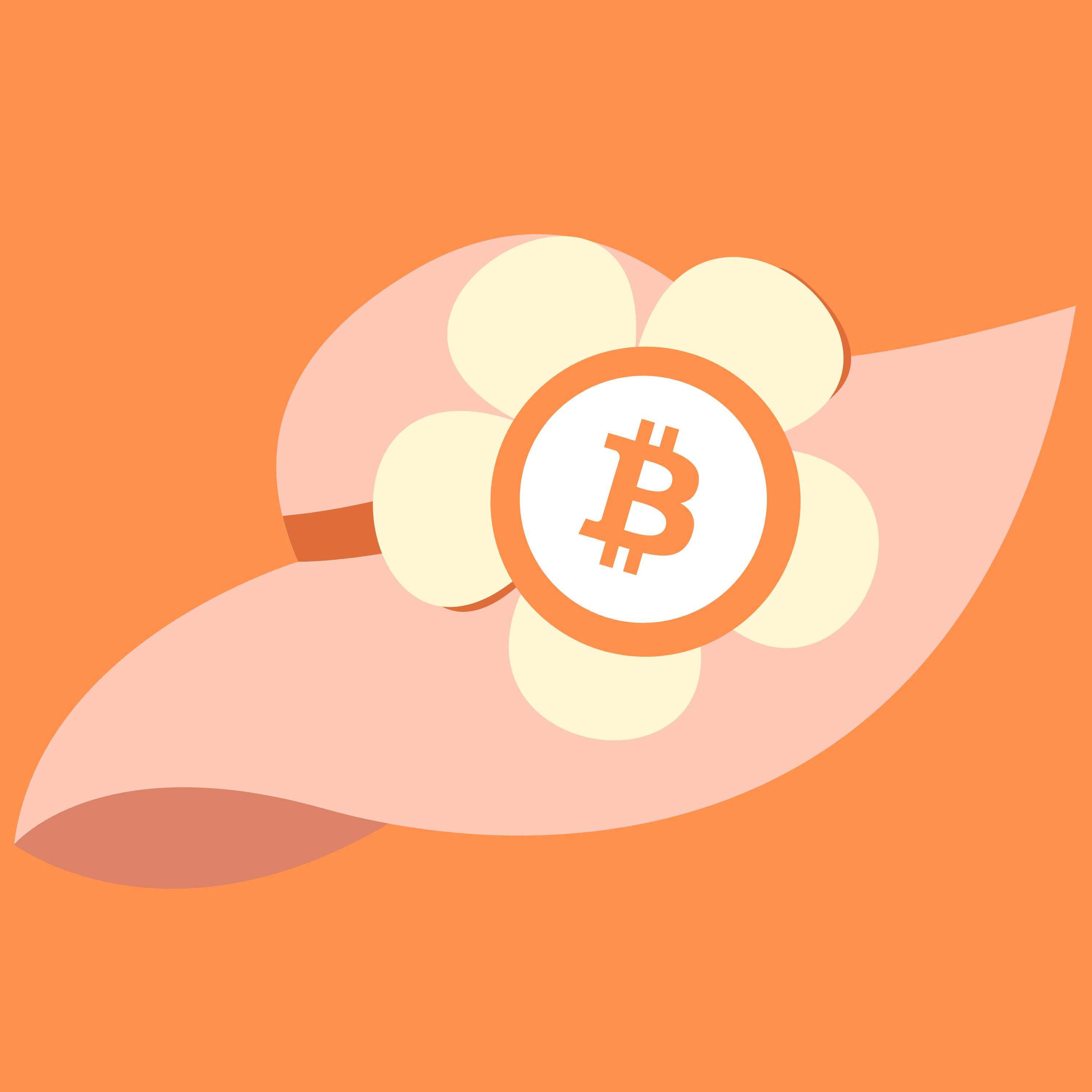Episode 39
A Tale of Two Americas: Marina's Bicultural Experiences and Exploration of Bitcoin - 2
Welcome to Orange Hatter podcast, and part two of Tali's conversation with Marina.
This conversation:
-brings to light the financial strain transaction fees impose on international workers, exemplified by a startling story of a 70% interest credit card.
-touches on Marina's belief in Bitcoin's stability and her work to grow the developer ecosystem.
-notes some advantages of Bitcoin over fiat currencies, especially in South American countries where the local currency can be unstable.
-illustrates how Bitcoin has become a lifeline for many, preserving value against rapid devaluation, with real-life examples.
-discusses Bitcoin's anti-inflationary nature and its potential to revolutionize traditional banking.
Share this eye-opening episode with those looking to understand the transforming power of Bitcoin!
Marina's Contact Info:
Nostr-npub17069lhtwe279umwker069lcp33aqdgew70tn5q8cu2avml3sxpsqcu8hgu
Twitter-@MarinaSpindler
To learn more about Bitcoin: Join the Orange Hatter Women's Reading Club. Visit https://www.meetup.com/womensbitcoinreadingclubwithorangehatter
Please email questions/comments to Tali@orangehatter.com
Remember: Knowledge is empowerment! 🍊🎩
Mentioned in this episode:
Free Market Kids Short
Get your HODL UP ("The best bitcoin game ever!") at www.freemarketkids.com.
Transcript
Hi everyone, welcome to Orange Hatter.
Tali:Today you're listening to part two of my conversation with Marina.
Tali:... you're going person to person, it's peer to peer.
Tali:And also I wanted to just, again, bring, bring it back to the fees, because I,
Tali:I feel like a lot of people who are working internationally, or who are
Tali:not working internationally, don't quite grasp the heavy toll the fees
Tali:play on, like, for example, immigrants who are working overseas and trying
Tali:to send money back to their families.
Tali:And the banks doing nothing, except allowing that transaction,
Tali:takes such a big chunk.
Marina:Well, I can just tell you, yesterday I was speaking to my father,
Marina:and he said he walked into a bank the other day, and they were like, oh,
Marina:we have a new credit card for you.
Marina:We have a new credit for card for you, sir.
Marina:It has 70% interest.
Marina:70!
Marina:So it's, like, blows your mind.
Marina:I mean, not even 10%, not even, like, 25 if you're really bad
Marina:and you don't pay on time.
Marina:70%.
Marina:And that was, like, the new good card to get.
Marina:So obviously it's, it's a crime practically to owe money...
Marina:and to be, I mean, being in debt here is slavery almost if you cannot
Marina:pay on time, if something happens.
Marina:It really is horrible.
Marina:So that's why I also think the system has to change and we have to
Marina:have different options, you know?
Tali:Yeah, for sure.
Tali:Okay, so you were, you were brought into Bitcoin in 2017, and it sounds
Tali:like based on our previous conversation, that you actually entered this space
Tali:with not only Bitcoin but also other cryptocurrencies, but current...
Tali:but since you've learned more about Bitcoin, you've now completely
Tali:dedicated yourself to Bitcoin.
Tali:Can you talk a little bit about, just, the comparison between Bitcoin
Tali:and the other cryptocurrencies?
Marina:Well, I, I mean, I don't think that the world is gonna be
Marina:one thing, everything for everyone.
Marina:It, it, I think, you know, you have to respect people's needs and choice.
Marina:Personally, I believe in Bitcoin.
Marina:I believe in what it offers, and I also believe that it will be
Marina:the global money, if you will.
Marina:And so because of those factors, I've made, made my decision to focus
Marina:on that technology, because it's the one that has been least hack...
Marina:least problems, least issues.
Marina:And for that, those reasons alone, I do think that it, it is the most stable and
Marina:the most trustworthy option out there.
Marina:And that's why I think I wanna dedicate myself to that, to that ecosystem and
Marina:to ensure that it continues to stay stable, it continues to stay strong.
Marina:And so my focus has been in, you know, I'm not a developer, but my, my work now
Marina:is about growing the developer ecosystem.
Marina:Because I love to, like, what I used to do was work with CEOs.
Marina:So for me, finding talent, thinking about talent, understanding what it means
Marina:to find people who are really good at what they do, that was my job, to find
Marina:the next generation of CEOs and find who can change the world, if you will.
Marina:That's what I wanted to do here, because developers are such an important part of
Marina:the Bitcoin ecosystem, and even if I may not be technical, I'm very good at finding
Marina:talent that is technical, if you will.
Marina:And that's what I've been dedicating myself to.
Tali:Yeah, that's so important.
Tali:And I wanna just bring it back one more time, just, about the other
Tali:cryptocurrencies, because I know that that's a major question that a
Tali:lot of women out there who don't...
Tali:who are new to this space would ask, which is why Bitcoin?
Tali:Why not Ethereum?
Tali:Why not other currencies?
Tali:But you mentioned that in the South American countries that you work
Tali:with, you really need more than one.
Tali:You need more options than one, because they have issues with their
Tali:fiat currency that's more urgent.
Tali:So can you talk a little bit about that?
Marina:Sure.
Marina:I mean, I, I can, so I'll touch two angles.
Marina:So I interviewed 63 women from 32 countries to create this report, because
Marina:there was previous reports about how women use Bitcoin and cryptocurrencies,
Marina:but it really was about US and UK.
Marina:I mean, it was 4,000 people interviewed, but none of them
Marina:were from the global south...
Marina:or some kind of tried, but, but because I grew up abroad, even though I'm
Marina:American, I really think that the story is much broader and much more complex.
Marina:And so, yes, for example, and I'll give you just the basics of, of the case
Marina:of Argentina, which all of you have known, they're in the news all the time,
Marina:because they have defaults all the time.
Marina:And I, I remember speaking with a girl who works for a US company, but
Marina:she gets paid in pesos in Argentina.
Marina:And within six months, her money has devalued to the half of it.
Marina:So one of the options she had was to exchange it for cryptocurrencies,
Marina:whether it's Bitcoin or something else.
Marina:But she also chose to, okay, save half, and then the other half, she would use
Marina:stable coins, because that way her money could last for the rest of the month.
Marina:And then she would exchange it for pesos once she had to pay more bills, right?
Marina:Because her life was still pesos, her life was still fiat, and she
Marina:needed to have fiat, but she just didn't want it to lose value, half
Marina:of its value within six months.
Marina:And even though she was paid by a international company, they were paying
Marina:her in the local currency, and it really, really made it very difficult
Marina:for her to make her money stretch, even if she had such a privileged
Marina:position to work for a US company.
Marina:And the other case, which was an interesting part of the report, I spoke
Marina:with somebody who was pretty high up.
Marina:He used to run, like, the, the bank regulation system in, in a country.
Marina:And he told me, this is not money, Marina.
Marina:Bitcoin is not money.
Marina:And I, and I go, wait a minute.
Marina:And what we proved was that 80% of the women that we interviewed preferred to
Marina:get paid in cryptocurrencies than not.
Marina:They preferred it over fiat, which definitely tells you, yes, it is money.
Marina:And it was a big myth that we debunked.
Marina:So much so that he opened up doors for me to talk to people at the IMF and the
Marina:World Bank and all these other places, where he kind of realized, oh shoot,
Marina:maybe, maybe I'm wrong about this.
Marina:So I think that was very interesting that, that like me, like when my
Marina:colleague chose to get paid in fiat and I chose to get paid in
Marina:Bitcoin, you know, I was completely convinced, I believed in it, and I
Marina:made a choice that made sense for me.
Marina:Right?
Marina:And I think that that's, uh, something that, that we're proving little by little.
Marina:I don't, I don't think it's, like, the norm, obviously, we're still, we're still
Marina:trailblazers in that sense, if you will.
Marina:And you, you can call it risk, but this girl that was...
Marina:that, I was talking to another girl in Argentina.
Marina:She says, Marina, I was working two jobs.
Marina:I couldn't barely buy a, a slice of pizza.
Marina:I was living very precariously in my country.
Marina:You know?
Marina:And, and I'm studying law, but I can't afford the books.
Marina:Like, my, my law degree is free.
Marina:I can, my...
Marina:they pay, they pay for me to, to go to my...
Marina:to, to my law degree.
Marina:But I can't pay for the bus or the books to study law.
Marina:So when you tell me that Bitcoin and, and, and all these options that I have are
Marina:dangerous for me, I mean, shut up dude.
Marina:Like, literally shut up.
Marina:Uh, my life was precarious.
Marina:Bitcoin is not precarious.
Marina:I mean, I at least know the risk.
Marina:I know I have to sometimes wait certain times when the price is too
Marina:low and, and maybe that's when I buy Bitcoin instead of panicking, right?
Marina:Because we all have that moment where you buy it...
Marina:I remember buying a hundred dollars of Bitcoin in 2017 or something, and
Marina:then selling it immediately, like, when it came from 7K to 10K, I, I sold it.
Marina:I was, like, panic.
Marina:And, and then, you know, slowly you start learning.
Marina:Okay, it sometimes goes up, it sometimes goes down.
Marina:What is your horizon?
Marina:How long do you want to, to keep it?
Marina:You, you start learning, but only until you download a wallet and, and kind of
Marina:understand it and follow the cycles...
Marina:you can understand what they mean by diamond hands and what they
Marina:mean by hodling, which is, uh, misspelling of hold, right, that
Marina:stayed as part of the culture.
those are the reasons, like A:it is money, and B: don't tell me, you
those are the reasons, like A:know, Bitcoin is precarious, because my life was precarious already.
those are the reasons, like A:Like, this is actually not a risk.
those are the reasons, like A:The risk is that my money will devalue within six months, and I'll have it,
those are the reasons, like A:and I will have no way to pay my bills.
those are the reasons, like A:So yes, I can wait it out.
those are the reasons, like A:I can, in that case, use stable coins to to save, like, as if
those are the reasons, like A:you were saving in dollars.
those are the reasons, like A:Right?
those are the reasons, like A:And not have the burden of, of the risk of your country defaulting again,
those are the reasons, like A:and not being able to access your bank account, like in Lebanon, right?
those are the reasons, like A:These, these things are happening all over the world.
those are the reasons, like A:And people are smarter and understand that they cannot trust
those are the reasons, like A:the government sometimes, right?
Tali:Yeah, for sure.
Tali:And that the value, which I, we call it value, but really it's
Tali:just an exchange rate, when it goes from, like, the high of Bitcoin was
Tali:68,000 and then it dropped to 16.
Tali:And our families who knew that we had invested in Bitcoin said, oh
Tali:my gosh, what are you gonna do?
Tali:And I said, well, it's on sale.
Tali:I'm gonna tell my kids go buy it.
Tali:If you understand what it stands for, then the exchange rate is less significant.
Marina:Well, I do think it takes time to get to that point, right?
Marina:Like, I do remember panicking, and I do remember, like, when it was low, I
Marina:didn't have money to buy more, right?
Marina:So, so sometimes it's not, like, so easy as we make it out to be.
Marina:But I do agree that if you have a conviction, and if you've been
Marina:reading, understanding, following, you know why, you know?...
Marina:and, and in fact, that's something that's really interesting...
Marina:that I realized that...
Marina:I was speaking to a lady, an older lady the other day that had never
Marina:heard about Bitcoin, and she didn't know that there was a limit...
Marina:that there wasn't, that there was a certain amount of Bitcoin that was
Marina:gonna be printed, if you will, as they say in the fiat world, and then
Marina:it would stop being available, right?
Marina:So become scarce with time.
Marina:And she did not realize that.
Marina:She thought you could just keep on printing Bitcoin, and Bitcoin was always
Marina:gonna be, like, being, you know, made or minted or whatever you wanna call it...
Marina:mined, in our case, we call it mined.
Marina:And so she then realized how it was anti-inflationary and with time, how
Marina:it would become more and more valuable.
Tali:Thanks for joining us today and learning with us today.
Tali:If the discussion with our guest resonated with you, and you would
Tali:like to dive deeper into the world of Bitcoin, don't miss out on joining the
Tali:Orange Hatter Women's Reading Club.
Tali:The meetup link is in the show notes.
Tali:Also, if there are women in your life whom you think will both enjoy and
Tali:benefit from learning more about Bitcoin, please share Orange Hatter with them.


